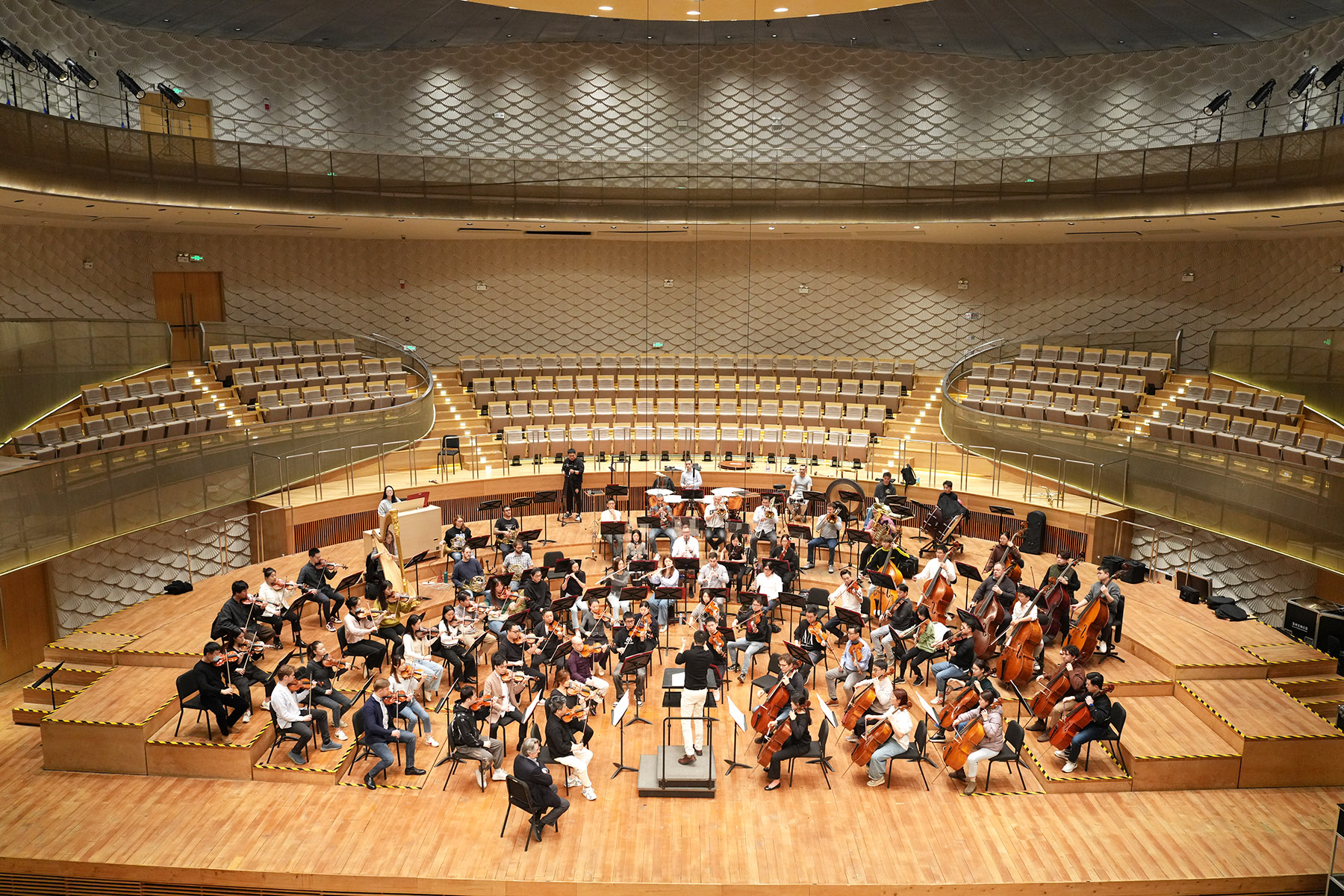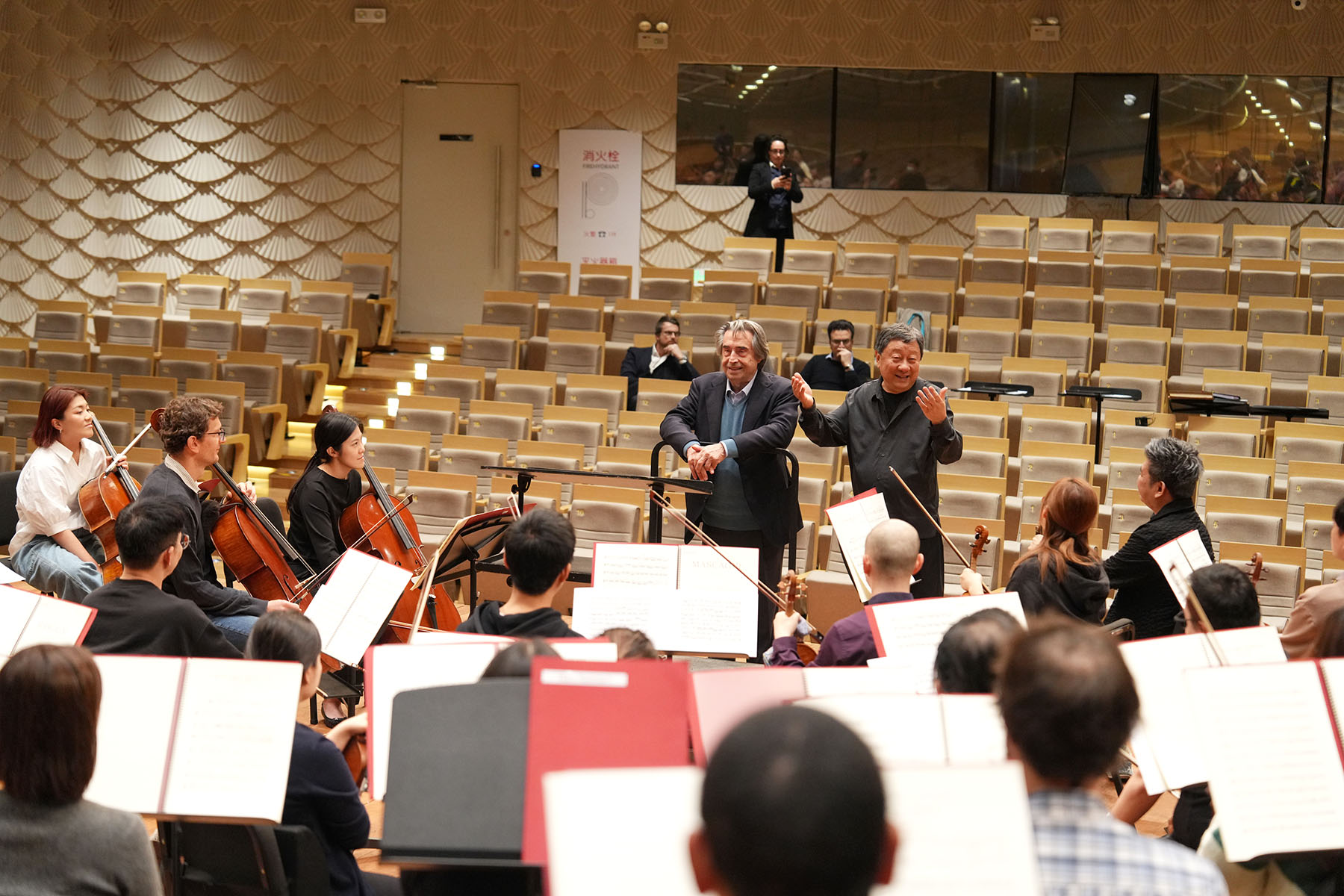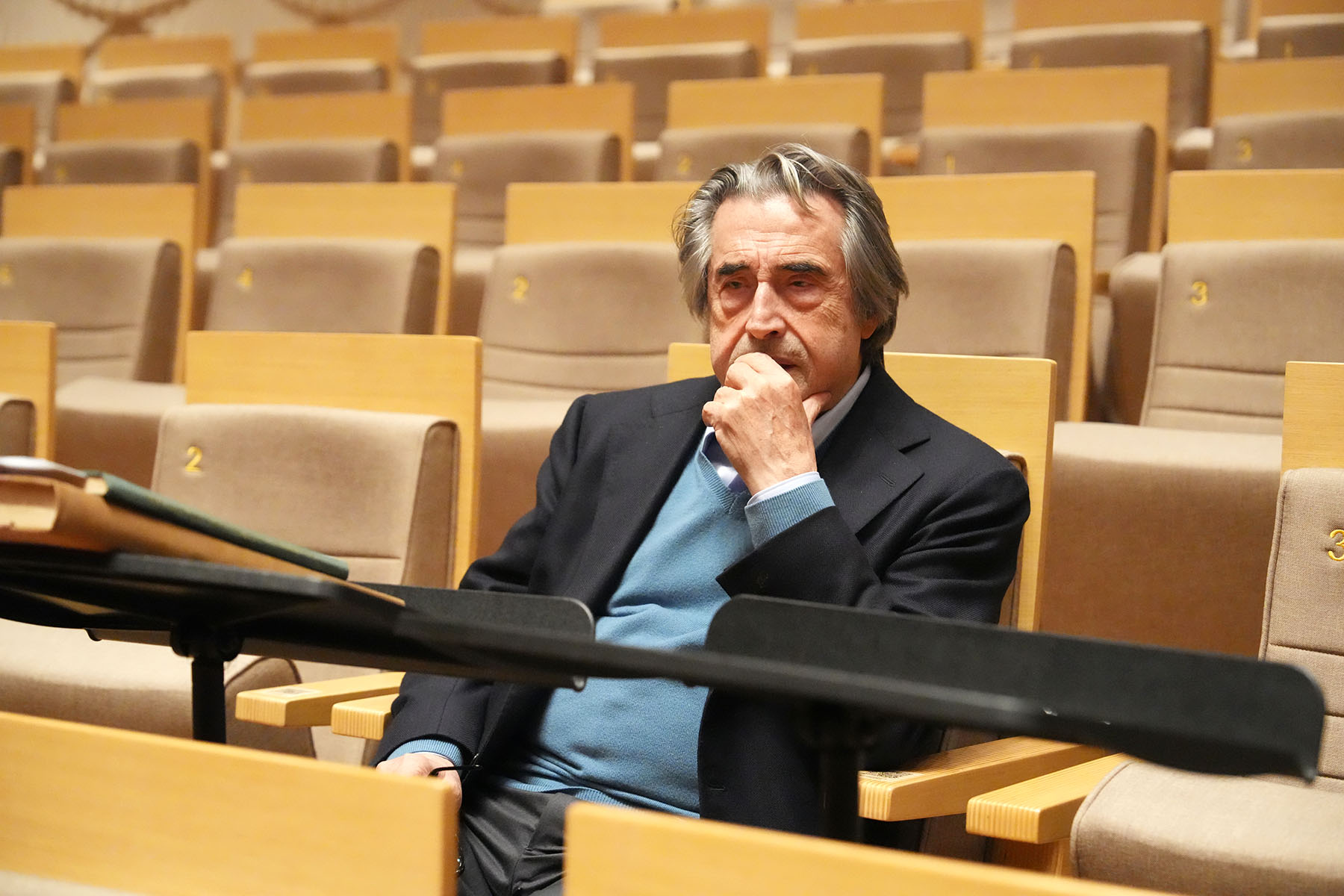Riccardo Muti's training program makes first China landfall with weeklong experience that is already changing young Chinese lives, Chen Nan reports.

When 83-year-old conductor Riccardo Muti reflects on his musical training, he is proud of his teachers, especially Antonino Votto (1896-1985), the Italian conductor who was Arturo Toscanini's assistant at Milan's Teatro alla Scala. Muti, who is one of the world's preeminent conductors, has led some of the most important orchestras in the world, including the Berliner Philharmoniker, the New York Philharmonic, and the Vienna Philharmonic.
"Toscanini knew Verdi. Toscanini played under Verdi at the premiere of Otello. So there is a lineage. All the things that Votto taught me, you don't find in the books," says Muti, who was born in Naples, and graduated from the Giuseppe Verdi Conservatory in Milan.
With the goal of passing on what he learned from his teachers, he launched the Riccardo Muti Italian Opera Academy in 2015, the first round of which was held in Ravenna. Since then, talented young musicians and an audience of music lovers from all over the world have participated in the annual program, which has been hosted in cities around the world, including Milan, Seoul and Tokyo.
READ MORE: Vienna's philharmonic triumph
On Saturday, Muti and his program arrived in Suzhou in Jiangsu province, the first time the prestigious event has been held in China. In collaboration with the Suzhou Symphony Orchestra, it has brought together 15 young conductors and seven singers selected from a global pool.
From last Saturday to this coming Sunday, the participants have been receiving personal guidance from Muti himself, who is leading them through intense courses and rehearsals focused on the Cavalleria Rusticana (Rustic Chivalry), an opera in one act by Italian composer Pietro Mascagni.

The project will culminate in two concert performances on Saturday and Sunday, featuring the Suzhou Symphony Orchestra and notable Chinese choirs, including the China National Symphony Orchestra Chorus, and the Tianjin Conservatory of Music Youth Choir. Four conductors will have the opportunity to participate in the concerts.
"I come from a time when tradition was highly valued and passed on with respect. But now, unfortunately, tradition seems to be lost," Muti says.
"Now, conducting seems to be a very easy thing. Though these young conductors have graduated from very famous schools, they know nothing about opera. They just walk onto the stage and wave their arms, which seems to be a performance, or let's say, an act," Muti continues. "Votto used to say that a good opera conductor must absorb the 'dust of the backstage'. You must know the technical aspects, the lighting, and be involved in everything — not just the music."
Muti studied the piano and composing for 10 years before learning to conduct.
"You have to know music very well. You have to know how to build an opera — what to say to the singers, how to work with a chorus, the relationship between orchestra and stage, and so on," he says, and adds that when the audience comes to the theater to enjoy an opera, they want to hear the tenor, the soprano, and whether the tenor can hit the high C.
"When you go to hear Mozart or Wagner, you go to hear Mozart or Wagner. The composers are the creators, and the singers and conductors must do exactly what the composers asked — not change what is written for the sake of a bigger sound or a more glamorous scene," Muti says.
He cites the second act of Verdi's opera Aida, which celebrates Egypt's victory with a parade.
"Many grand productions of Aida present the second act in an exaggerated way, with horses and elephants appearing onstage. However, it's a tragic story, a tale of forbidden love. It should be presented in a more reserved and mysterious way," Muti says.

He also discusses the challenges of singing in Italian, a language that he says is built to be sung, and which can be difficult for nonnative speakers to master.
"When you sing in Italian the right way, you can deliver the emotions correctly. There are different colors you can hear in Italian operas," Muti says. He gives the example of Cavalleria Rusticana, which is set in a small village square in Sicily in the late 19th century. The opera focuses on beautiful village scenes and the lives of the rural peasantry, whose struggles are central to the narrative, highlighting the social dynamics and emotional complexities of country life in 19th-century Italy.
"All of that needs to be portrayed through music, enhancing the realism and emotional intensity of the operatic experience," Muti says.
The conductor is aware that many Chinese classical music enthusiasts know him from his time conducting the Vienna Philharmonic's New Year's Concert, which he has done in 1993, 1997, 2000, 2004, 2018, and 2021. He is set to do so again at the orchestra's 2025 New Year's Concert.
The maestro also used his trip as an opportunity to visit museums, learning about Suzhou's cultural heritage.
ALSO READ: Practice makes perfect on Tianjin Juilliard tour
Conductor Fang Zhongling, 27, is one of the standout participants in the Suzhou program.
"I am participating in this academy because I want to learn from maestro Muti's experience and the essence of Italian opera. Maestro Muti's pursuit of drama in music has left a deep impression on me. He said that every note has a meaning, and every measure has drama. This has inspired me to rethink the meaning, context, and dramatic elements behind every character and every line in opera, starting from the script and lyrics," says Fang, who graduated from the China Conservatory of Music, and the UK's Royal Birmingham Conservatoire. He is now assistant conductor with the Shenzhen Symphony Orchestra.
Fang also says that the maestro brought with him a deep knowledge of authentic Italian opera culture, which is not easy to absorb in such a short period of time.
Contact the writer at chennan@chinadaily.com.cn


